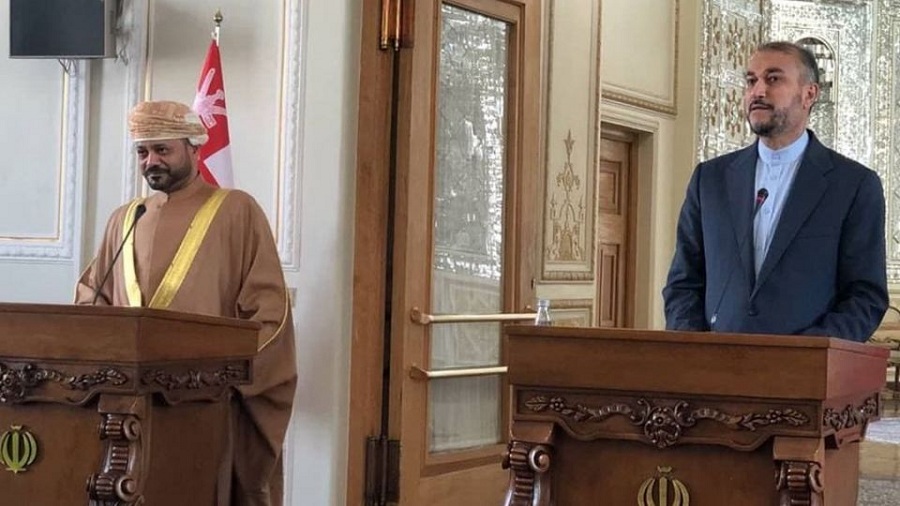Alwaght- Iranian Foreign Minister said the Islamic Republic will never cross its own red lines in the Vienna negotiations aimed at putting the 2015 nuclear deal back on track.
"Under no circumstances will we cross the red lines of the Islamic Republic in the Vienna talks and we will show our strong commitment to this issue," Hossein Amir-Abdollahian said in a joint press conference with his Omani counterpart, Sayyid Badr al-Busaidi, in Tehran on Wednesday.
“We believe that any negotiation requires to be useful and that there should be benefits for the great nation of Iran in that discussion.”
Amir-Abdollahian also said that the talks in the Austrian capital have reached a critical stage, adding that there are still few but very important issues to be solved in the course of the negotiations.
Iran, he added, is holding direct talks with the representatives of the P4+1 group of countries while exchanging non-papers with the US through European Union deputy foreign policy chief Enrique Mora.
“We receive many messages from US officials underlining the need for direct dialog. What matters to us is what will be the benefit of this dialog.... We have heard mostly positive words and messages from the American side, but so far it has not taken any practical steps to prove its goodwill,” he said.
“Therefore, we are optimistic about the Vienna talks. We hope that the few sensitive, important remaining issues will be settled in the coming days with the realism of the Western side.”
Washington left the Joint Comprehensive Plan of Action (JCPOA) in 2018 and began to implement what it called the “maximum pressure” campaign of sanctions against the Islamic Republic, depriving the country of the economic benefits of the agreement, including the removal of sanctions, for which Iran had agreed to certain caps on its nuclear activities.
In the meantime, the other parties to the deal, in particular France, Britain and Germany, only paid lip service to safeguarding Iran’s economic dividends as promised under the JCPOA, prompting Iran – after an entire year of “strategic patience” – to reduce its nuclear obligations in a legal move under the deal.
The Vienna talks began last April on the assumption that the US, under the Joe Biden administration, is willing to repeal the so-called maximum pressure policy pursued by former president Donald Trump.
Tehran says it won’t settle for anything less than the removal of all US sanctions in a verifiable manner. It also wants guarantees that Washington would not abandon the agreement again.
Elsewhere in his remarks, the top Iranian diplomat said Tehran-Muscat relations are “on a good path” and hailed political ties as “exemplary and strategic” in the Persian Gulf region.
He further noted that the two countries have agreed to develop trade cooperation, expressing hope that Iran’s President Ebrahim Raeisi will visit Oman as soon as possible upon an invitation sent by Sultan Haitham bin Tarik.
The Omani foreign minister, for his part, emphasized that political relations between the two countries are based on mutual trust and respect as well as common interests.
He also said that he hopes Raeisi will visit Oman in the near future so that the two countries will mark a new chapter in bilateral cooperation.



























